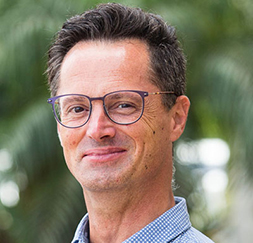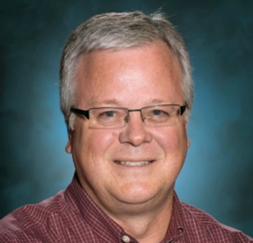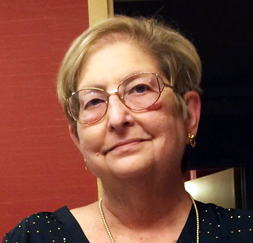Email us about your project at [email protected]
or fill out the contact form below. We will be in touch.
LINNAEUS BIOSCIENCE, INC
3030 Bunker Hill St., Suite 201
San Diego, CA 92109
(858) 352-6494
Email us about your project at [email protected]
or fill out the contact form below. We will be in touch.
LINNAEUS BIOSCIENCE, INC
3030 Bunker Hill St., Suite 201
San Diego, CA 92109
(858) 352-6494
©Copyright Linnaeus Bioscience, Inc. | All Rights Reserved
Kit Pogliano
Dean, Graduate Division
Professor, Division of Biological Sciences
Dean designate, Division of Biological Sciences
Dr. Kit Pogliano received her PhD from the Department of Microbiology and Molecular Genetics at Harvard Medical School and was a Damon Runyon-Walter Winchell postdoctoral fellow at Harvard University. She is a recipient of the Searle Scholar and Beckman Young Investigator Awards and is a Fellow of the American Academy of Microbiology. She joined the UC San Diego faculty in 1996 and is a Professor in the Section of Molecular Biology in the Division of Biological Sciences and Dean of the Graduate Division (2017-2018). On September 15, 2018 she became the first female Dean of Biological Sciences at UC San Diego. Dr. Pogliano’s considerable contributions to UC San Diego include serving as Chair of the Section of Molecular Biology (2016-2017), founding Chair of the Standing Committee on Service- and People-Oriented Culture (January 2015- 2017), Chair of the San Diego Division of the Academic Senate (2013-2014), Chair of the Senate Committee on Committees (2010-2012) and Chair of the Senate Committee on Affirmative Action and Diversity (2005-2006). She has served on a variety of national and international scientific advisory groups organized by the National Institute of Health, the American Society for Microbiology, the Max Planck Society and the American Academy of Microbiology.
Dr. Pogliano’s research entails developing new cell biological and genome engineering methods and using them to understand the design principles for bacterial cells and to discover new antibiotics to treat drug resistant bacterial infections. She was one of the first to apply fluorescence microscopy tools to the study of bacterial cells, and her research has provided insight into the molecular mechanisms by which bacteria localize proteins, generate asymmetry and are dynamically rearranged during growth and spore formation. She and her husband Joe Pogliano together demonstrated that quantitative live cell imaging provides a rapid and accurate method to identify and determine the mechanism of action of new antibacterial molecules and to perform antibiotic susceptibility testing. In 2012, she and Joe cofounded Linnaeus Bioscience, which seeks to identify and characterize new antibacterial molecules via corporate partnerships, and to make this rapid but technically challenging method available to the pharmaceutical industry, in order to accelerate antibacterial drug discovery.

Frederik Deroose has more than 25 years of experience in drug research. He spent 17 years at Janssen Pharmaceutica (part of Johnson & Johnson) where he was a key contributor in numerous discovery programs and an inventor of multiple New Molecular Entities (NMEs) in the fields of Inflammation, Neuroscience and Oncology and Anti-Infectives. At Janssen, Dr. Deroose developed together with a team of chemists and biologists a kinase-directed platform including a unique collection of macrocyclic compounds designed to interact tightly with the ATP pockets of kinases. These kinds of compounds display attractive drug-like properties, readily cross cell membranes and have high potential for further optimization towards clinical development. Additionally, Dr. Deroose and coworkers have identified inhibitors of kinases that were intractable in more classical approaches. This platform has primarily been used at Janssen to target human kinases. Currently this platform has been licensed to Oncodesign. Dr. Deroose’s company named Asclepia is fully supporting the medicinal chemistry for Oncodesign and is contributing to the further expansion of this platform, including applications for this kind of molecules as antibacterials.

Michael Barbachyn did his undergraduate work at Calvin College in Grand Rapids, Michigan and then went on to receive his Ph.D. in Organic Chemistry from Wayne State University in 1983, working with Professor Carl Johnson. After a NIH Postdoctoral Fellow stint with Professor Samuel Danishefsky at Yale University, he joined The Upjohn Company in 1985. During his 27+ years in the pharmaceutical industry, at multiple companies, Dr. Barbachyn has been primarily involved with research in the anti-infective area. As a highlight, he co-invented linezolid, marketed as Zyvox™, the first clinically useful oxazolidinone antibacterial agent. Another oxazolidinone agent prepared in his lab, PNU-100480 (sutezolid), is currently in a Phase 2a clinical trial for TB. In recognition of this, Dr. Barbachyn received an Upjohn Award (2001), ACS Regional Industrial Innovation Award (2003), ACS National Award for Team Innovation (2007), and the PhRMA Discoverers Award (2007). Dr. Barbachyn is an inventor on 39 US Patents and has authored or co-authored 45 papers & chapters in the chemistry and anti-infective fields. Dr. Barbachyn is currently serving on the faculty at Calvin College as Brummel Chair in Organic Chemistry.

Lynn Silver owns LL Silver Consulting, LLC (2004-present), an independent consultancy to the pharmaceutical industry in antibacterial discovery and pre-clinical development, generally applying her experience in pharmaceutical and academic research to the problems and projects of antibacterial discovery. She earned her BA at Brandeis University in Biology and her Ph.D. at Tufts University in Molecular Biology and Microbiology. She did postdoctoral work in the Département de Biologie Moléculaire at the Université de Genève and the Laboratory of Biochemical Pharmacology at NIH. Dr. Silver was employed at Merck Research Laboratories from 1982 to 2003 where she conducted research and supervised groups in discovery efforts for new antibacterials in both natural products (NPs) and chemical collections. Her expertise includes broad knowledge of antibacterial agents, screen design and execution, microbiological evaluation of hits and leads, and studies of mechanism of action and resistance. She participated in the discovery of the novel antibiotic platensimycin and the first published inhibitors of LpxC. She was a member of several drug-development project teams including that of the carbapenem INVANZÒ. Throughout her career, Dr. Silver has authored significant research papers and reviews in the field of bacterial genetics, physiology, and biochemistry, as well as discovery and analysis of antibacterial agents. She is a member of the Editorial Boards of Antimicrobial Agents and Chemotherapy and ACS Infectious Diseases, has been a member of many SABs and NIH study sections. She has spoken at and chaired numerous meetings focused on antibacterial discovery. She was elected a Fellow of the American Academy of Microbiology in 2018.

Karen Shaw, Ph.D. has been working in the field of antibacterial and antifungal drug discovery and development for over thirty years and have published over 100 articles in peer-reviewed journals. She has significant experience building and leading infectious diseases drug discovery teams at both Johnson & Johnson Pharmaceutical Research & Development and Schering Plough Research Institute. At Trius Therapeutics, as Sr. VP of Biology, she directed the microbiology development efforts for the tedizolid program (Sivextro), including presentation of the microbiology and pharmacology at the advisory board meeting in March 2014. Sivextro was approved by the FDA in June 2014 for the treatment of patients with acute bacterial skin and skin structure infections (ABSSSI) caused by certain susceptible bacteria, including S. aureus. In addition, she was an integral part of the discovery and initial development of the broad-spectrum TriBE novel class of inhibitors which target DNA Gyrase/Topoisomerase IV. The projects at Trius included other iterative structure-based drug design programs, including a ThrRS synthetase program, which led to the discovery of novel, bacterial specific inhibitors. She also directed the antifungal genomics discovery programs at Schering-Plough Research Institute, and developed dozens of high-throughput target-based assays to screen for novel inhibitors. As CSO at Amplyx, Dr. Shaw was responsible for all preclinical development for fosmanogepix (APX001), mycological studies supporting clinical advancement of this drug, as well as the Gwt1 inhibitor research project which led to the discovery of the novel Gwt1 inhibitor, APX2039, which is currently in preclinical development for the treatment of cryptococcal meningitis.
Joe Pogliano is a Professor of Biological Sciences at the University of California San Diego and cofounder of Linnaeus Bioscience He received two B.S. degrees (in Biochemistry and Honors Biology) from the University of Illinois, Urbana-Champaign. He obtained a Ph.D. from Harvard Medical School where he studied cell division, outer membrane stress responses, antibiotic mechanism of action and protein secretion. He joined the University of California, San Diego faculty in 2003. His lab discovered the phage nucleus and spindle and many new families of actins and tubulins that make up the bacterial cytoskeleton. He and Kit Pogliano developed Bacterial Cytological Profiling (BCP) technology, a technique that provides a rapid method for screening for antibiotics and understanding their mechanisms of action and co-founded Linnaeus Bioscience Inc. to commercialize BCP technology.
Diana Quach obtained her Ph.D. in Bioengineering at University of California, San Diego focusing on the development of a rapid antibiotic susceptibility assay for human pathogens using bacterial cytological profiling (BCP). During her graduate studies, she created a library detailing the response of S. aureus to multiple antibiotics and established a data analysis pipeline allowing for the rapid visualization and analysis of multi-dimensional data. Dr. Quach joined Linnaeus Bioscience in 2016 and is currently Chief Innovation Office, using her mathematics and engineering background in order to expand and refine the capabilities of BCP.
Joseph Sugie earned his Ph.D. from the University of California, San Diego, and specializes in using advanced technologies for mechanism of action determination. Since 2018, he has been dedicated to accelerating biological research by creating bespoke tools and specialized analysis pipelines. As Chief Technology Officer at Linnaeus Bioscience, Dr. Sugie is pioneering the integration of machine learning and AI to transform bacterial cytological profiling.
Hannah Tsunemoto obtained her Ph.D. from Joe Pogliano’s lab at the University of California San Diego in 2021 studying the influences of media and phage on bacterial antibiotic susceptibility. She has been a part of Linnaeus Bioscience since 2021, leading several projects involving determination of MOA for potential therapeutics against the ESKAPE pathogens and managing the daily operations of LBI as Chief Operations Officer.
Marc Sharp’s Ph.D. work with Dr. Kit Pogliano at the University of California, San Diego, focused on using cell biology and genetics to study sporulation in B. subtilis. Dr. Sharp went on to study law at the University of California, Berkeley Law School before practicing as an intellectual property litigation associate with Morrison and Foerster LLP for seven years. He joined Linnaeus Bioscience in 2013 as Chief Scientific Officer and has since helped develop some of the company’s key cytological profiling technology as well as other complementary analytical tools.
